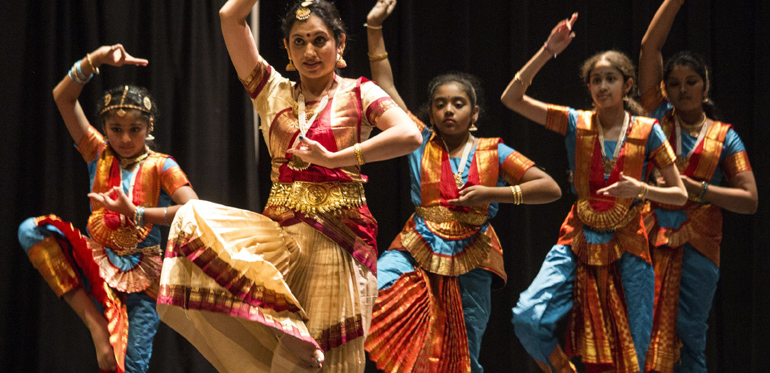- East Of Kailash, New Delhi-110065
- +91-11-26238444
- [email protected]
Spend Time-In Music-Dance-Laugh-Keep Fit

Not in India the women's health issues have attained higher international visibility and renewed political commitment in recent decades. While targeted policies and programs have enabled women to lead healthier lives, significant gender-based health disparities remain in many countries. With limited access to education or employment, high illiteracy rates and increasing poverty levels are making health improvements for women exceedingly difficult. Health-related challenges continue. Many of the modest gains in women's health realized in recent decades are now threatened or have been reversed due to war, economic instability and the HIV/AIDS pandemic. Basic health care, family planning and obstetric services are essential for women – yet they remain unavailable to millions. Gender-equitable approaches to health are needed to enable women's full participation in the planning and delivery of health services. The health of families and communities are tied to the health of women – the illness or death of a woman has serious and far-reaching consequences for the health of her children, family and community. The health of families and communities are tied to the health of women – the illness or death of a woman has serious and far-reaching consequences for the health of her children, family and community. The slogan, “Healthy Women, Healthy World” embodies the fact that as custodians of family health, women play a critical role in maintaining the health and well being of their communities.
Maternal conditions are leading causes of death and disability among women. More than 99 percent of the estimated 536,000 maternal deaths each year occur in the developing world. Every year, about 10 million women endure life-threatening complications during pregnancy and childbirth, sometimes leading to long term disability. Globally, women comprise half of the adults living with HIV/AIDS – in sub-Saharan Africa, the proportion rises to 61 percent. A woman affected by HIV/AIDS is plunged further into poverty, losing the ability to provide for herself and her children Early and unwanted childbearing, HIV and other sexual transmitted infections and pregnancy and related disease/ illnesses and deaths account for a significant proportion of the burden of illness experienced by women – especially in low-income countries. Nearly all-maternal deaths are preventable through timely prenatal and postnatal care; skilled birth attendance during delivery and the availability of emergency care to deal with complications. The health benefits of spacing and limiting births for mothers and children with family planning services are
Well known.
The persistence of hunger and abject poverty in India and other parts of the world is due in large measure to the subjugation, marginalization and disempowerment of women. Women suffer from hunger and poverty in greater numbers and to a great degree then men. At the same time, it is women who bear the primary responsibility for actions needed to end hunger: education, nutrition, health and family income. Looking through the lens of hunger and poverty, there are seven major areas of discrimination against women in India: Malnutrition: India has exceptionally high rates of child malnutrition, because tradition in India requires that women eat last and least throughout their lives, even when pregnant and lactating. Malnourished women give birth to malnourished children, perpetuating the cycle. Poor Health: Females receive less health care than males. Many women die in childbirth of easily prevented complications. Working conditions and environmental pollution further impairs women's health. Lack of education: Families are far less likely to educate girls than boys, and far more likely to pull them out of school, either to help out at home or from fear of violence. Overwork: Women work longer hours and their work is more arduous than men's, yet their work is unrecognized. Men report that "women, like children, eat and do nothing." Technological progress in agriculture has had a negative impact on women. Unskilled: In women's primary employment sector - agriculture - extension services overlook women. Mistreatment: In recent years, there has been an alarming rise in atrocities against women in India, in terms of rapes, assaults and dowry-related murders. Fear of violence suppresses the aspirations of all women. Female infanticide and sex-selective abortions are additional forms of violence that reflect the devaluing of females in Indian society. Powerlessness: While women are guaranteed equality under the constitution, legal protection has little effect in the face of prevailing patriarchal traditions. Women lack power to decide who they will marry, and are often married off as children. Legal loopholes are used to deny women inheritance rights.
So to keep fit to women Navjivan Foundation have launched Spend
Time-In Music-Dance-Laugh-Keep Fit and through its awareness camp aware to Indian ladies to dance music is music composed specifically to facilitate or accompany dancing. It can be either a whole musical piece or part of a larger musical arrangement. In terms of performance, the major categories are live dance music and recorded dance music. Dance is an art form that generally refers to movement of the body, usually rhythmic and to music, used as a form of expression, social interaction or presented in a spiritual or performance setting. So ultimately both keeps mind and body fit.
Laugh is to express certain emotions, especially mirth or delight, by a series of spontaneous, usually unarticulated sounds often accompanied by corresponding facial and bodily movements. So a lady is backbone of family and busy in her day-to-day life in this connection she should keep fit for her good health and good management.
Most of the ladies are neglected for their health in Indian sub continent it may be urban or rural. So for their nature they affect by several disease both mentally and physically. In the physically disease one can get treatment but for the mental problem it is difficult for the better treatment. Do for mental fit ness we have tress by our Programme with small children as model and give awareness on leisure time spend time by hearing music, enough laugh etc.











